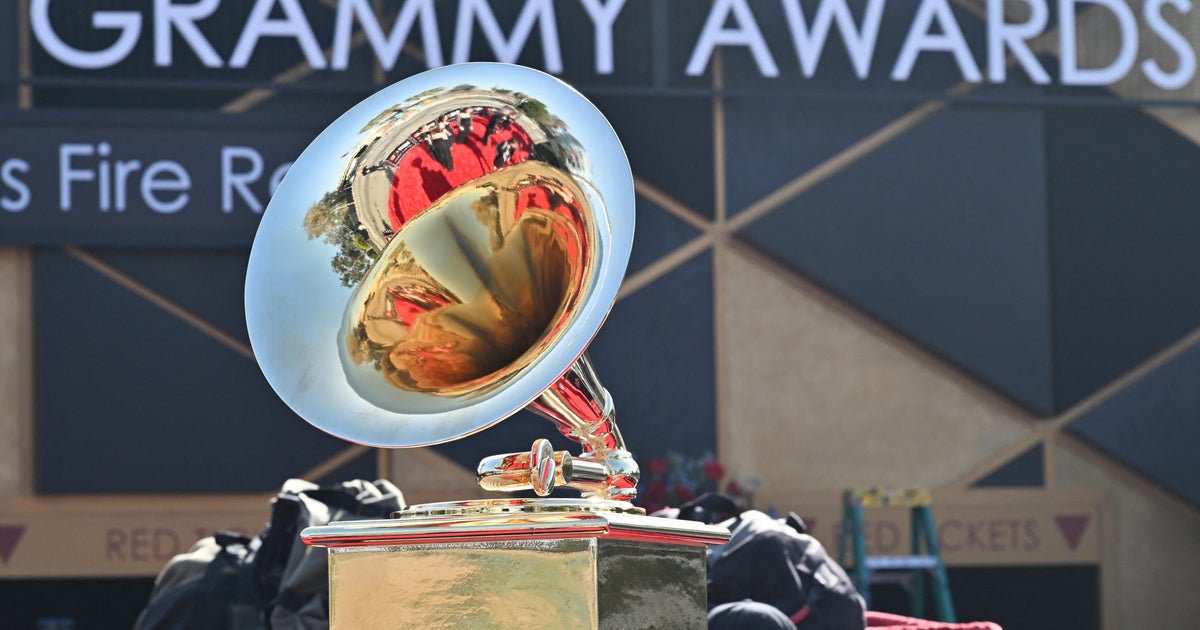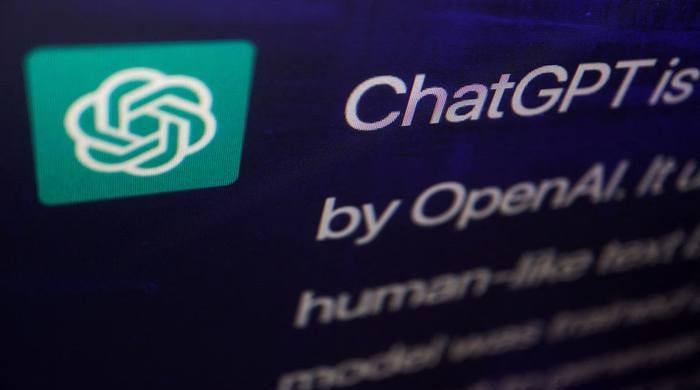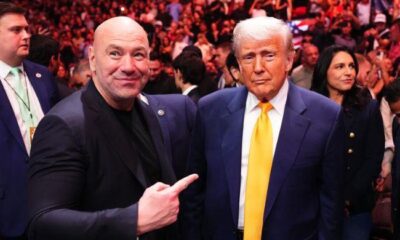Entertainment
Bad Bunny will headline the 2026 Super Bowl halftime show

Bad Bunny will bring his Latin trap and reggaeton swagger to the NFL’s biggest stage next year: The Grammy winner will headline the Apple Music Super Bowl halftime show in Northern California.
The NFL, Apple Music and Roc Nation announced Sunday that Bad Bunny will lead the halftime festivities from Levi’s Stadium on Feb. 8 in Santa Clara, California.
The Puerto Rican superstar’s selection comes amid another career-defining run: He’s fresh off a historic Puerto Rico residency this month that drew more than half a million fans and is leading all nominees at the Latin Grammys in November. He has become one of the world’s most streamed artists with albums such as “Un Verano Sin Ti,” an all-Spanish-language LP.
“What I’m feeling goes beyond myself,” Bad Bunny said in a statement. “It’s for those who came before me and ran countless yards so I could come in and score a touchdown… this is for my people, my culture, and our history. Ve y dile a tu abuela, que seremos el HALFTIME SHOW DEL SUPER BOWL.”
Kevin Mazur/Getty Images
Roc Nation founder Jay-Z said in a statement that what Bad Bunny has “done and continues to do for Puerto Rico is truly inspiring. We are honored to have him on the world’s biggest stage.”
The 31-year-old artist born Benito Antonio Martínez Ocasio has won three Grammys and 12 Latin Grammys. He has become a global ambassador for Latin music, starred in films such as “Bullet Train,” “Caught Stealing” and “Happy Gilmore 2,” and collaborated with top fashion houses. He’ll enter the Latin Grammys as the leading nominee with 12, dethroning producer and songwriter Édgar Barrera.
Roc Nation and Emmy-winning producer Jesse Collins will serve as co-executive producers of the halftime show. Hamish Hamilton will serve as director.
Last year, Kendrick Lamar shined with guest SZA in New Orleans, setting the record for the most-watched Super Bowl halftime show with 133.5 million viewers. His performance surpassed the audience for Michael Jackson’s 1993 show.
Entertainment
Netflix’s exciting February line up revealed

Netflix is packing February with romance, reality TV and high-stakes drama — from Olympic-level ice dancing to the long-awaited conclusion of Bridgerton season 4.
Here are the seven Netflix shows in February 2026 you won’t want to miss.
- Glitter & Gold: Ice Dancing
This new docuseries follows elite ice dancers preparing for the Milan Cortina Olympics. The show centers on Evan Bates and Madison Chock, Piper Gilles and Paul Poirier, and Laurence Fournier Beaudry and Guillaume Cizeron, offering a behind-the-scenes look at training, pressure and personal lives.
- The Lincoln Lawyer – Season 4
Manuel Garcia-Rulfo returns as Mickey Haller — this time accused of murder. Season 4 picks up after last season’s shocking ending, with Mickey fighting to clear his name in and out of court.
- Love Is Blind – Season 10
The hit dating series returns for its milestone season, heading to Ohio to introduce a new group of singles searching for love without seeing each other first.
- How to Get to Heaven From Belfast
From Derry Girls creator Lisa McGee, this new comedy follows three former friends who reunite at a funeral and stumble into an unexpected mystery across Ireland.
- The Night Agent – Season 3
Gabriel Basso’s Peter Sutherland travels the globe in season 3 as a new conspiracy unfolds, with scenes set in Istanbul, Mexico City, New York and Washington, D.C.
Premieres on February 19.
- Bridgerton – Season 4, Part 2
Benedict and Sophie’s love story reaches its dramatic conclusion as they face class divisions, family pressure and growing passion.
Premieres on February 26.
- F1: Drive to Survive – Season 8
The long-running Formula 1 docuseries returns with more access to drivers, teams and behind-the-scenes drama from the racing world.
Premieres on February 27.
Entertainment
The Grammy Awards are tonight. Here’s how to watch live and what to know.

The 68th annual Grammy Awards return Sunday night to honor the best in the music business with some big-name performances, new awards, and Kendrick Lamar leading the pack with nine nominations.
These Grammys will see the addition of two new categories: Best Traditional Country Album and Best Album Cover, bringing the total number of awards doled out to 95. The category formerly known as Best Country Album is now named Best Contemporary Country Album.
Where to watch the Grammys with cable
The 68th annual Grammy Awards will be broadcast live on Sun. Feb. 1, on CBS television stations starting at 8 p.m. Eastern Time (5 p.m. Pacific Time). Find your local CBS station here.
How to stream the Grammys live
The Grammy Awards will stream live and on-demand on Paramount+ in the U.S. The show is available live and on-demand for Paramount+ Premium subscribers. Paramount+ Essential subscribers can stream the show on-demand beginning Monday.
How to watch the Grammy Awards red carpet
CBS Los Angeles’ red carpet special will begin at 7 p.m. Eastern Time, hosted by anchor Kalyna Astrinos and entertainment journalist Grae Drake. It will stream live on CBS News Los Angeles, and those in the L.A. market can also watch the broadcast on the KCAL channel.
Who are the Grammy nominees?
Among Lamar’s nine nominations is a nod for Album of the Year for “GNX.” It’s his fifth consecutive studio album to be nominated for the award, something no other artist has ever done.
Lady Gaga, Jack Antonoff and Canadian producer and songwriter Cirkut received seven nominations each. Bad Bunny, Sabrina Carpenter, Leon Thomas and Canadian audio engineer Serban Ghenea all received six nods.
Bad Bunny is the first Spanish-language artist to be nominated for song, record and album of the year in the same year, according to Variety.
Here is the full list of Grammy nominees.
Who is performing at the Grammy Awards?
The eight artists nominated for Best New Artist — Addison Rae, Alex Warren, KATSEYE, Leon Thomas, Lola Young, Olivia Dean, Sombr and The Marías — are set to perform at the Grammy Awards on Sunday.
The show will also feature performances from Sabrina Carpenter, Justin Bieber and Clipse and Pharrell Williams.
Lauryn Hill will perform a tribute to D’Angelo, who died of cancer in October at the age of 51, and Roberta Flack, who died in February at age 88.
Post Malone, Duff McKagan, Slash, Chad Smith and Andrew Watt are set to pay tribute to the late Ozzy Osbourne.
Who is presenting at the Grammy Awards?
Three-time Grammy Award winner Harry Styles is among the stars set to present awards at the show. Doechii, who already has a Grammy Award under her belt and is nominated for five awards on Sunday, will also be a presenter at this year’s ceremony.
Who is hosting the Grammy Awards?
Comedian and former “The Daily Show” host Trevor Noah is returning to host the Grammy Awards for a sixth consecutive year.
Kevin Winter/Getty Images for The Recording Academy
Last year, he steered the show through a broadcast that was refocused in the wake of the devastating Los Angeles fires.
He told “CBS Mornings” co-host Gayle King the year before that he relishes the hosting role because the Grammys show is always so unpredictable.
“I don’t know what’s going to happen. So that’s what I love about the Grammys is it’s live; it’s happening; it’s on the fly,”
Where are the Grammy Awards held?
The ceremony for the 68th annual Grammy Awards will take place at Crypto.com Arena in Los Angeles.
Entertainment
After ads, will ChatGPT responses remain trustworthy? OpenAI says yes

As OpenAI is gearing up to rollout ads for both free and $8 ChatGPT Go, the company has assured users that ads will not affect ChatGPT’s responses and will be labelled and separated from the content.
Early signs of this rollout have been spotted on Android devices, suggesting the inclusion of ads in ChatGPT is close.
As noted on X (formerly Twitter), OpenAI has designed a full-screen onboarding experience to familiarise users with ads in ChatGPT.
Although the AI giant has assured not to share personal information with advertisers, the current chat may still influence the type of sponsored ads displayed below the answers.
At the current stage, the commendable thing is that users have the option to hide ads, understand why specific ads were shown, and clear their ad data.
Ads will appear as a “Sponsored” block, and tapping the overflow menu draws the dropdown to hide the ad, report it, or even “Ask ChatGPT” about it.
OpenAI stated: “Our mission is to ensure AGI benefits all of humanity; our pursuit of advertising is always in support of that mission and making AI more accessible.”
Furthermore, the company has emphasised that conversations will remain private from advertisers and that user data will never be sold. A new “Ads controls” page has also been added to let users manage their ad history and interests without affecting their chat data.
These ads won’t be displayed to users of ChatGPT Plus, Pro, Business, and Enterprise plans.
-

 Sports5 days ago
Sports5 days agoPSL 11: Local players’ category renewals unveiled ahead of auction
-

 Tech1 week ago
Tech1 week agoStrap One of Our Favorite Action Cameras to Your Helmet or a Floaty
-

 Sports1 week ago
Sports1 week agoWanted Olympian-turned-fugitive Ryan Wedding in custody, sources say
-

 Entertainment1 week ago
Entertainment1 week agoThree dead after suicide blast targets peace committee leader’s home in DI Khan
-

 Tech1 week ago
Tech1 week agoThis Mega Snowstorm Will Be a Test for the US Supply Chain
-

 Sports1 week ago
Sports1 week agoStorylines shaping the 2025-26 men’s college basketball season
-

 Fashion1 week ago
Fashion1 week agoSpain’s apparel imports up 7.10% in Jan-Oct as sourcing realigns
-

 Entertainment1 week ago
Entertainment1 week agoUFC Head Dana White credits Trump for putting UFC ‘on the map’















